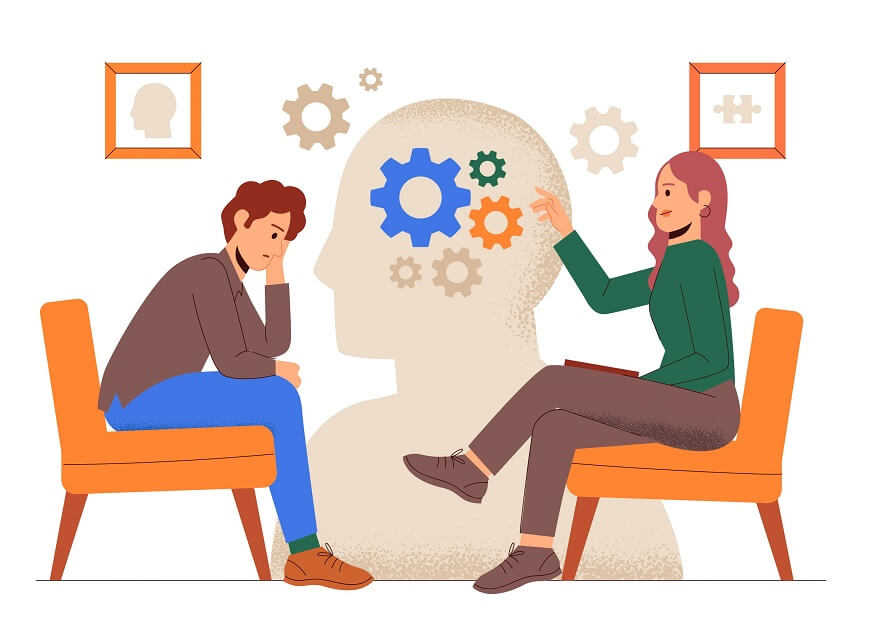
In today’s medical establishments, patients’ rights, safety, and legal safeguards of their doctors are given equal consideration. As a result, medical sciences possess a higher level of understanding and concepts of law. Before we dive deep into the issues of consent and, importantly, informed consent in counseling, it is necessary to understand its need and historical relevance.
In the past, a patient’s consent was inferred and not given. This gave the practitioners a lot of freedom and the upper hand to experiment and exploit the needy at their cost. Conversely, a lack of evidence in the case of consent also proved detrimental to the doctor community.
Patients regularly accused the therapists and surgeons of not maintaining transparency in the treatment process. They were charged with non-bailable prison in many cases. This led to the creation of an organized system of consent forms, which were legally backed and uniform in nature.
What Is Informed Consent in Counseling?
When a patient offers their doctor their consent to begin treatment, they are said to have given “informed consent.” This means the patient has fully comprehended and accepted the terms, conditions, and risks related to the procedure.
What is important and must be taken care of is that the doctors must clearly state the conditions in the consent form. Because when participation is based on such a consensual basis, it becomes ethical bearing on the doctor to make the patient know what would go into the treatment.
ALSO READ: Top Patient Satisfaction Survey Questions Your Survey Should Have
Importance of Informed Consent in Counseling

The medical consent form is meant to educate the patients regarding the processes, their outcomes, and the risks and costs related to the treatment. In general, patients get to know what to expect in the treatment. The various components of informed consent in counseling are – a volunteer basis, the competency of the patient or the guardian, and the opportunity to give out information about the self.
The counselors get a legal safeguard against false claims by some patients of maltreatment. Patients and doctors both benefit from comprehensive consent forms which lawyers prepare.
Informed consent allows the patient to think independently and support the treatment by cooperating with the counselor. It enables the patients to initiate communication and give voice to their thoughts and fears.
The consent process also allows the counselor to begin rapport-building with the patient. Communication between the two parties may be hindered by frequent clarification of the consent form’s questions.
ALSO READ: Focus on Mental Health Awareness in the Workplace
Benefits of Informed Consent in Counseling
Informed consent in counseling further develops an environment of trust and collaboration that is highly professional and, at the same time, quite informal. Trust is extremely necessary as it lets the patient hand his concern to the doctor and empowers the doctor to continue the treatment best.
- From the client’s perspective, this form sets boundaries and expectations from the counselor’s side. It ensures that the patient is well taken care of and not exploited. The doctor has to work within the set framework or guidelines and keep the patient informed about the various stages of the treatment.
- Having this form handy allows the patient to weigh the pros and cons of the treatment before deciding whether to proceed with it. This reduces the anxiety associated with the treatment and lets the patients be mentally free when giving the go-ahead to the medication.
- Most importantly, when made and filled by competent individuals, it is to be understood that this form guards the dignity, justice, and rights of all those involved in the counseling process. The patients are free as per their choice, and the doctors are bound to maintain ethical standards.
Safeguarding Interests With Informed Consent in Counseling
Within this system, confidentiality in informed consent is another ethical angle. The details which the patient reveals in the form, for the sole purpose of the betterment of the treatment, must be kept hidden from third parties by strict professional measures. Letting out this crucial information endangers the safety and rights of the client and makes them prone to external exploitation.
The process ensures the supremacy of consent, whether given in a written or oral medium. It also allows the experts to evaluate their client’s condition and competence in providing the answers in the consent form.
Alternatively, the therapists must also provide the patients a chance to obtain a second opinion from other medical institutions just to quench their anxieties and curiosities.
In many examples of informed consent, we witness negligence of work ethics from the doctor’s end or the mental absence on the part of the patient. This is one way to bridge this gap between the two mutually interacting parties and is surely a legally backed manner to stand for rights and human dignity.
ALSO READ: Unpacking the Benefits of Conducting Regular Health Survey
Process Followed For Informed Consent in Counseling
When you seek counseling, the counselor will describe what it is, potential outcomes, and alternative strategies. This aids in your decision regarding whether or not to seek counseling. Before you begin, the counselor will ensure you comprehend and agree with everything. In order to confirm your agreement, you will also sign a document. Your safety and legal rights are safeguarded by doing this.
For clients who are severely distressed and disturbed, this consent form is in their best favor because it allows doctors to make them feel welcome and comfortable. Medical practitioners are required to explain the process to their patients to the best of their abilities. This ensures that they are not targeted by legal violations afterward.
In essence, explaining informed consent in counseling is a must for every practitioner.
Medical counselors and psychological therapists both utilize this method to ensure the legitimacy of their treatment. Broadly, a mutual exchange of necessary information and conversation between the two sides is the core of this process.
Not Sure Where To Begin?
Explore our solutions to discover what is most important to your customers,
clients, and prospects. And best of all – it doesn’t take any coding!
Free Trial • No Payment Details Required • Cancel Anytime

